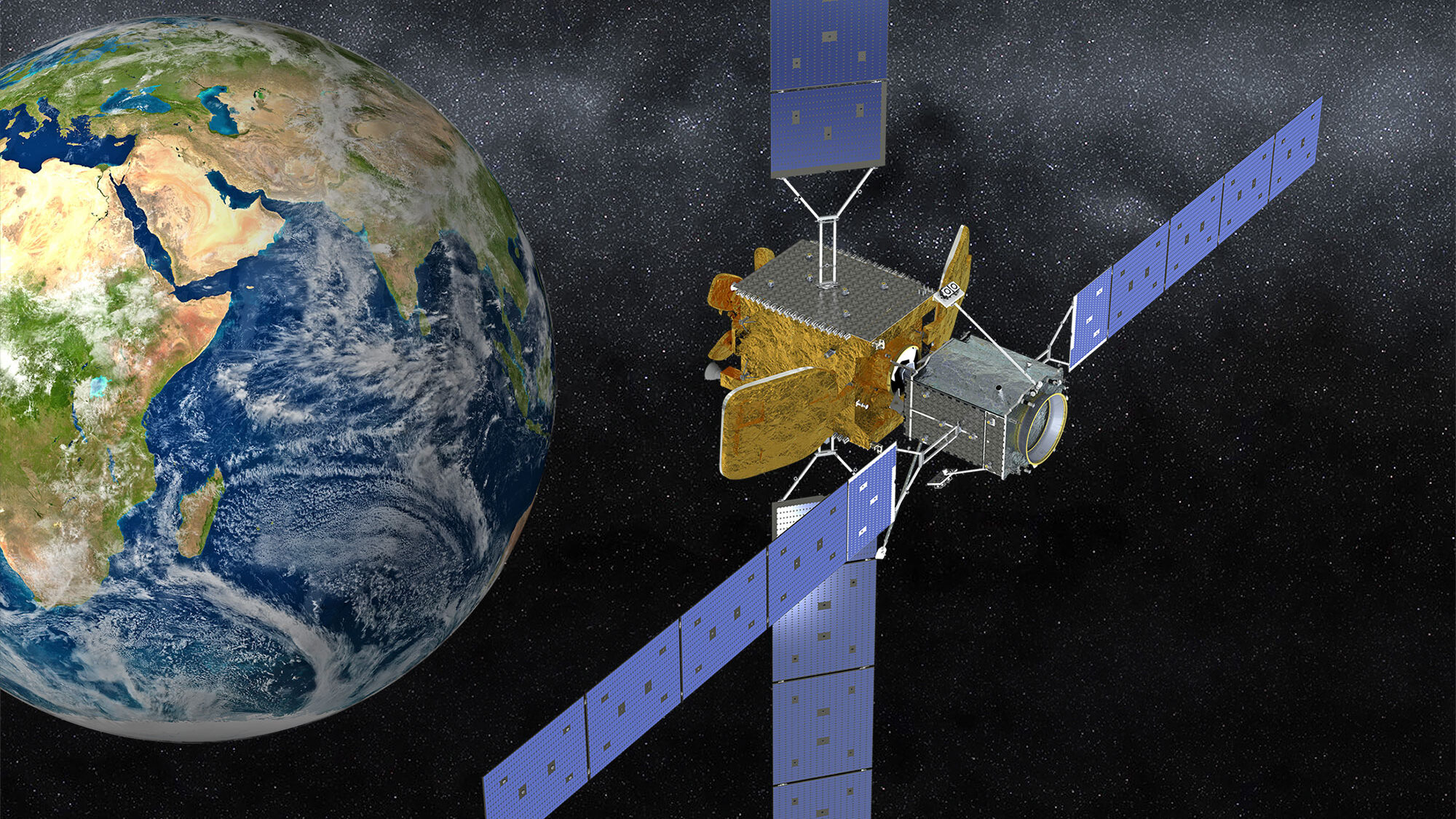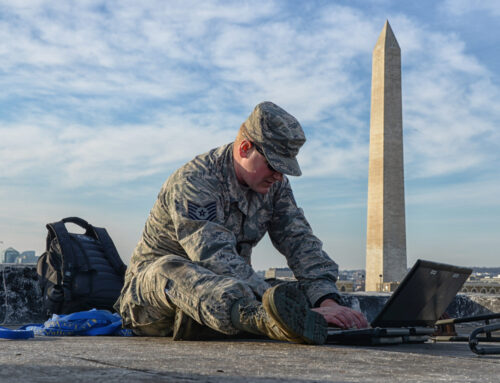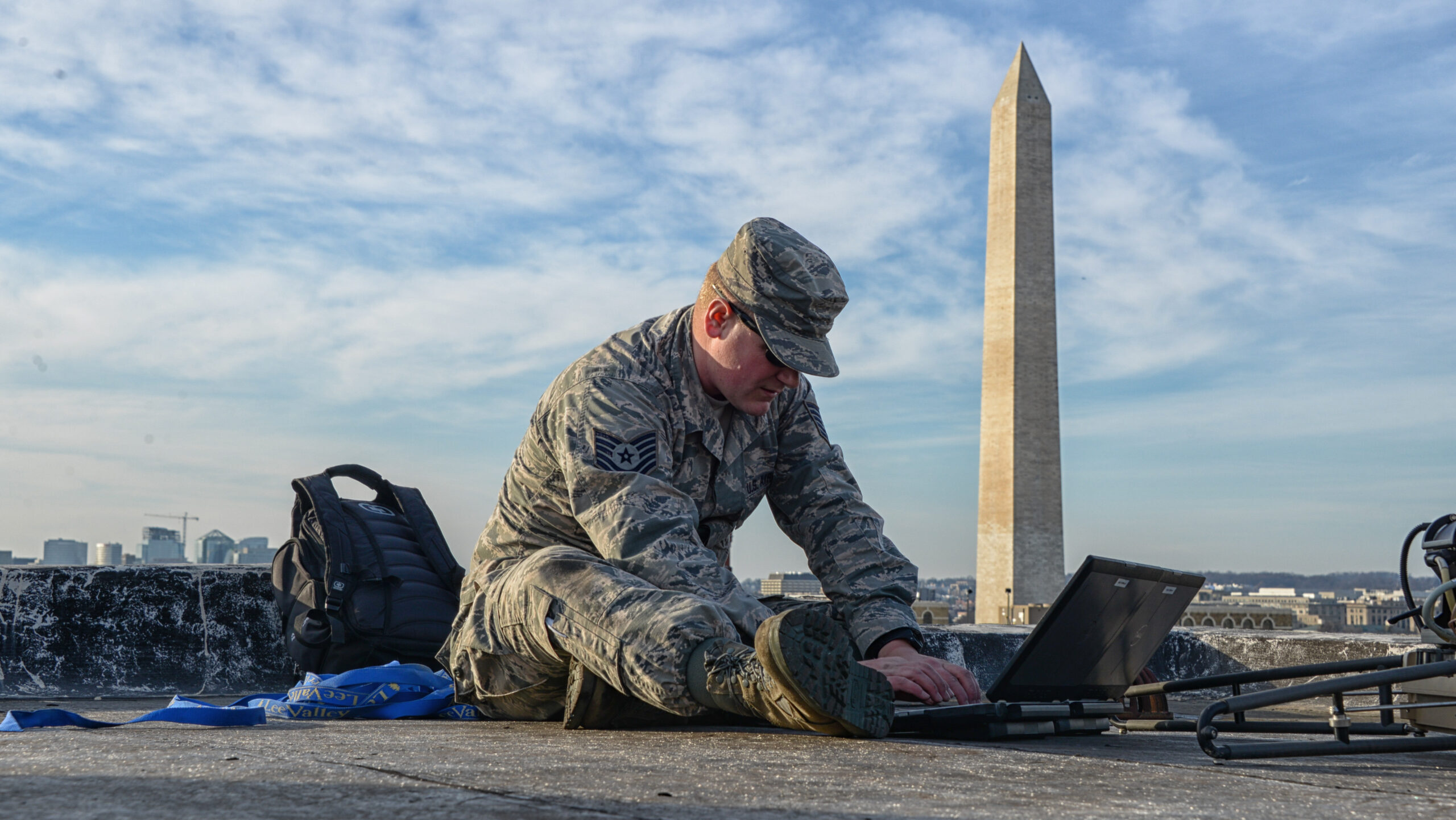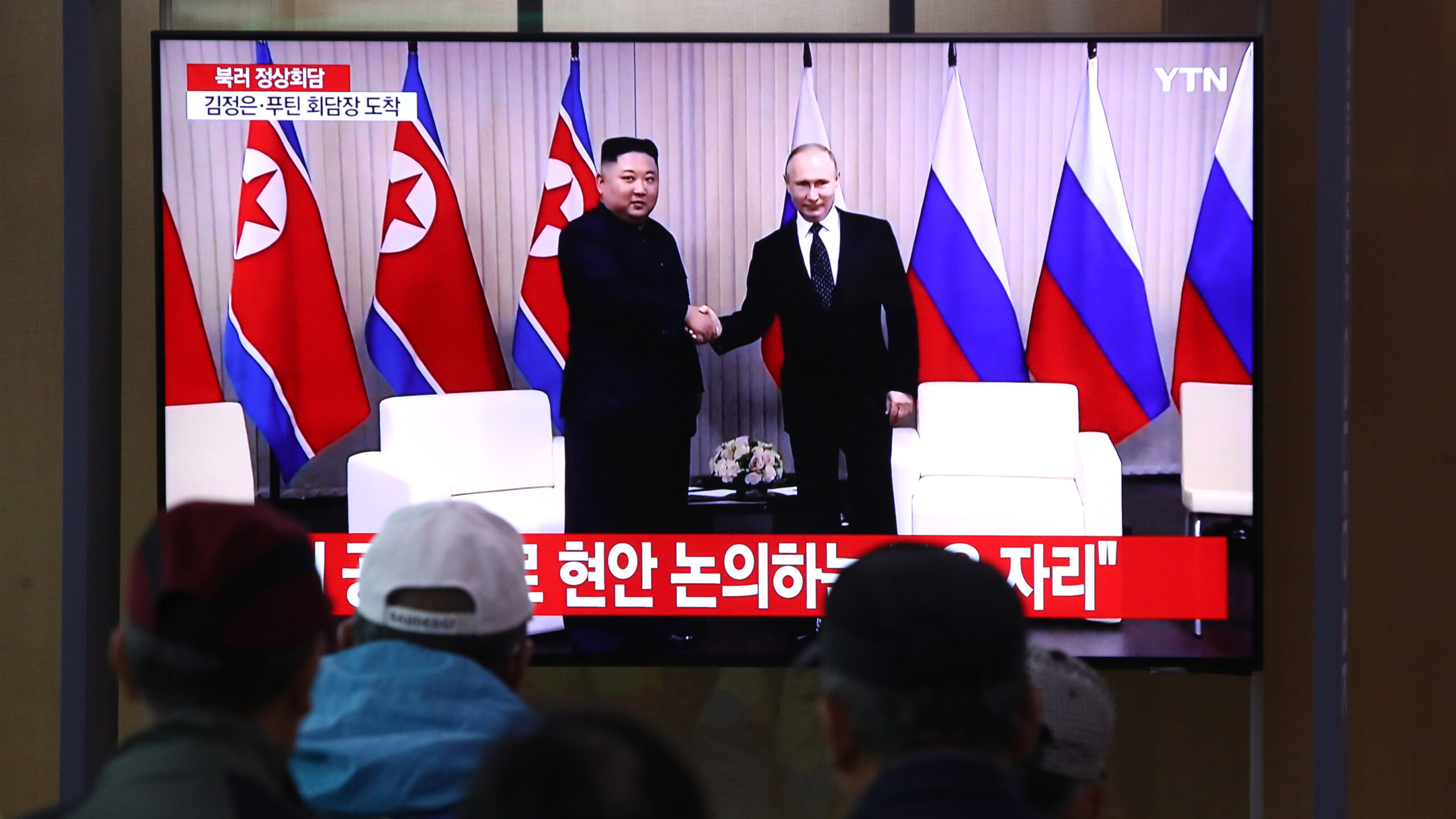Northrop Grumman SpaceLogistics MEV-1 On-Orbit Servicing Satellite (Northrop Grumman image)
WASHINGTON — The Commerce Department today announced a tripartite set of export reform rules for a variety of commercial space technologies — including the removal of licensing restrictions on sales of remote sensing satellites and on-orbit servicing platforms to Australia, Canada and the United Kingdom.
A senior Commerce official emphasized that “this isn’t just a regulatory update” in a background briefing with reporters today. “This is about maintaining our leadership in space technology, protecting our national security and bolstering our partnerships around the world.”
The export control changes also will bolster national security, allowing the Defense Department to more easily cooperate with allies and partners to implement its ambitious plans to create a “hybrid space architecture” that would enable commercial and friendly government satellites to augment US military space capabilities.
“The three new rules … recalibrate our approach to export controls. They’re easing restrictions on some of the less sensitive space related technologies and on spacecraft related items going to our closest allies, like Australia, Canada and the UK. These changes will offer relief to US companies and they’ll increase innovation without compromising the critical technologies that keep our nation safe,” the Commerce official said.
The first rule removes “licensing requirements” remote sensing satellites carrying electro-optical cameras and radars, as well as satellite systems “providing space based logistics, assembly or servicing spacecraft that are destined for Australia, Canada and the UK,” the official said.
The second change removes license requirements for exports of “certain spacecraft components to over 40 allies and partners across the globe” — for example, including members of NATO and the European Union — easing exports of “the least sensitive components for most destinations, and broadening license exceptions,” the official explained. A key goal of this change is to bolster and broaden NASA cooperative programs.
Finally, the official said, third rule change is still in the proposal stage and is being published alongside a corresponding State Department export reform proposal in the Federal Register for public comment through Nov. 22.
The changes imposed by the third rule would “transfer jurisdiction of certain space-related defense articles that no longer provide a critical military or intelligence advantage” from the US Munitions List, embodied in the International Traffic in Arms Regulations (ITAR) managed by the State Department, to the Commercial Control List, managed by the Commerce Department via the less restrictive Export Administration Regulations (EAR).
The proposed list shift is designed “to account for advances in technology and the changing operational environment and to facilitate international cooperation and commercial space activities while continuing to protect our national security and foreign policy interests,” the official aid.
Some examples of things that would be moved from the Munitions List include “spacecraft that conduct collision avoidance, spacecraft that perform cooperative docking or grappling, and spacecraft for autonomous detection and tracking a ground vehicles and aircraft,” the official said.
Commerce and the State Department back in 2019 published advanced notices of proposed rulemaking on plans for licensing reform, seeking industry input. Last December the National Space Council tasked Commerce and State to reform space export controls.
Chirag Parikh, executive secretary of the National Space Council, told the annual Space Foundation Space Symposium on April 9 that the changes were needed because the last round of reforms took place more than decade ago and technology, all around the world, has since rapidly evolved.
“With today’s updates to our export controls, the United States is taking a bold step forward in fostering a strong space industrial base,” he said in a statement today. “These changes will strengthen international alliances and reflect America’s commitment to innovation and leadership in space.”











